Classification of types of testing
He taught students the subject of "Testing and debugging software" in IzhSTU. The structure of the course is built on the basis of the classification of types of testing.
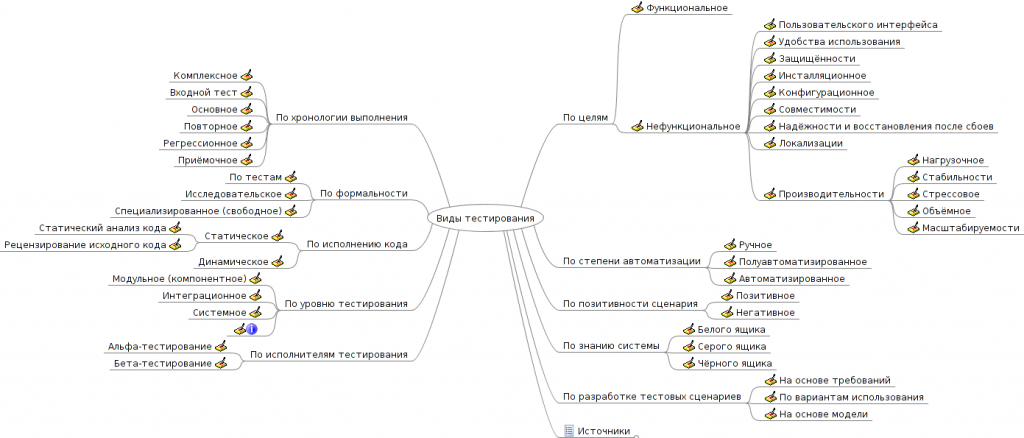
Map can be downloaded here .
Proverb of different nations of the world.
')
Test types are grouped on a mind map by:
Each lesson was chosen:
Began to perform test work within the selected reference type of testing.
The composition of the test papers was selected from the reference list:
Each time a map was used to select the type of testing. Each time a reference list of types of work was used.
The author is unknown to me, perhaps Friedrich Nietzsche or Rene Descartes.
With specific examples, we considered which test design technique is more applicable to functional testing and which to the configuration one when preparing scenarios. Understand what the differences test execution for the main functional research testing, from the main functional testing tests . What will be different testing plans. As with this, test projects appear (checklist or mind-map, against instructions with an order of actions and an expected result). What is common is the defect tracking process.
We considered the differences between the reports on configuration testing and scalability testing , or the reports on load and volume .
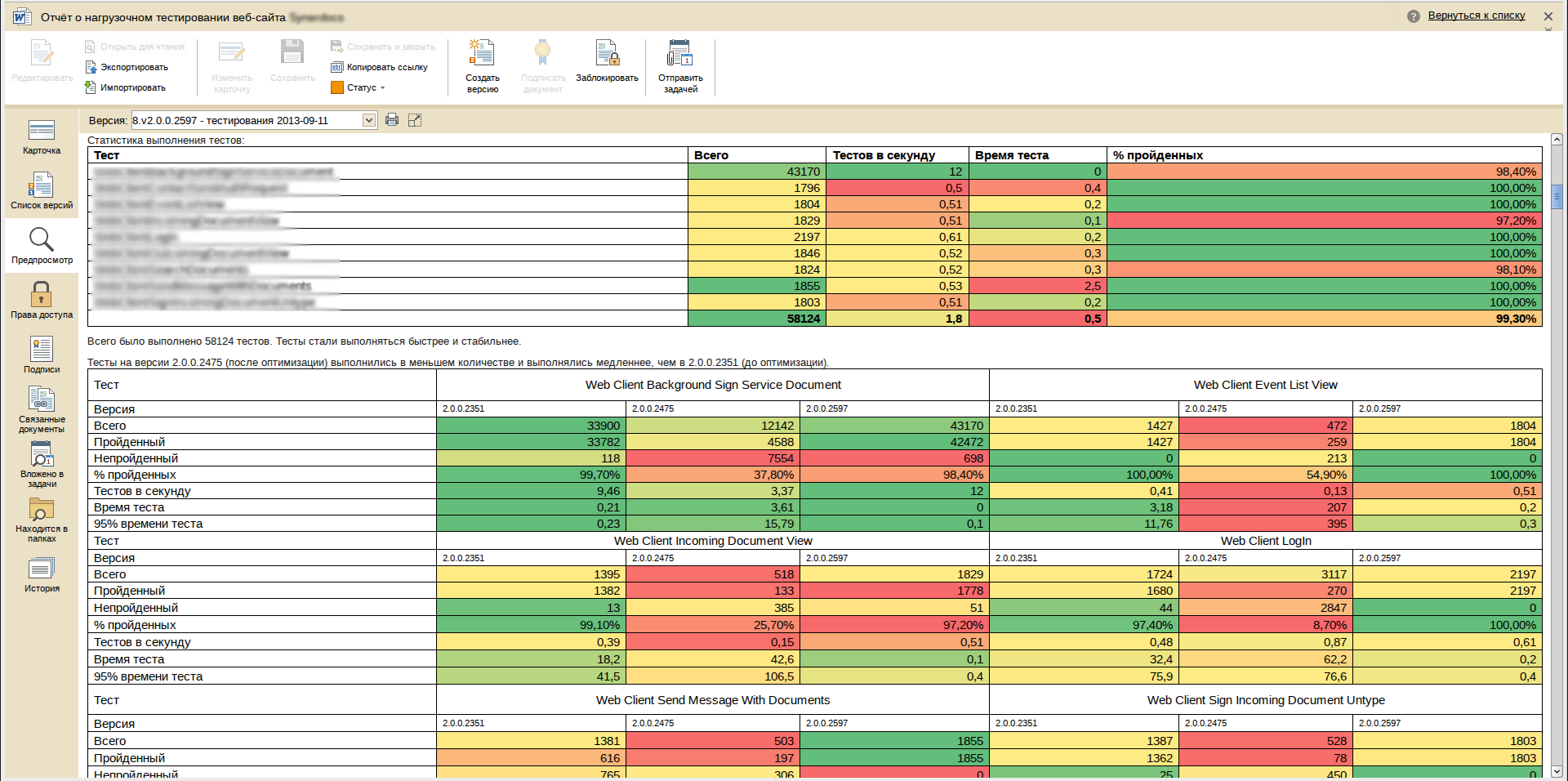
Brought examples of reports, unclassified and old, reduced them to 3 pages, removing confidential information. They analyzed that in general reports (structure: goals, basis, brief results, details). What are the differences. How to read them. How to make up. How to form automatically.

So, sorting out in pairs the types of testing formed the idea of the choice of tools, approaches, goals and objectives of the studied activity.
The list of works on testing took from SWEBOK (v3), chapter 4 "Software Testing", section "Test Process", subsection "Test Activities".
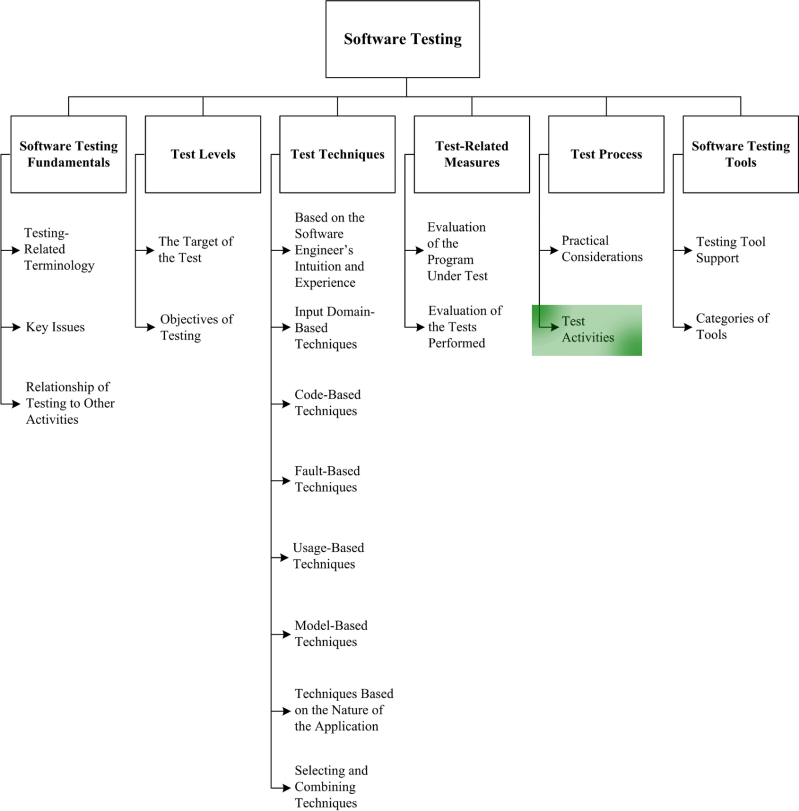
These types of jobs are performed by test engineers all the time. Every kind of work is important. For everyone there are good and bad recommendations, tools, techniques. The purpose of the lecture sessions was to report to the students the types of testing and the types of testing activities. A relatively small list of knowledge, and this knowledge is enough to start improving the quality of the software.
Fedor Ivanovich Tyutchev, February 27, 1869.
The map is a reference note for the teacher. Reminds about what, it is necessary to have time to say. It helps not to say too much. After all, there is so little time, but there is so much to tell.
Previously taught in the classroom, where there were only blackboards and chalk desks. I came to classes exactly at the beginning, I did not prepare a board. I did not want to stand back and draw the studied subject area during classes. Explain the relationships in the diagrams conveniently. Therefore, for each topic I made a mind map. Printed in several copies, distributed to students in class. Blackboard and chalk used to depict examples. Drawn as Baitics move according to the system diagram and lead to SQL injection, or how horizontal scaling works. This is how the habit of preparing mind-cards was formed.
The card allows you to:
While conducting a lesson, you read the paper, but reading between the lines is permissible.
Students, having a map in front of their eyes, have a greater choice:
They think more, find analogies easier, answer questions more confidently. Preparing a card for each lesson, students begin to wait for the next material. And if, all of a sudden, you do not prepare a scheme, the lesson will begin with the question: “And what, did the printer break down?” - they laugh, it’s already good.
The peculiarity of this card with types of testing is the presence of definitions for each node. If you save the map in html format, you will get bulk reading.
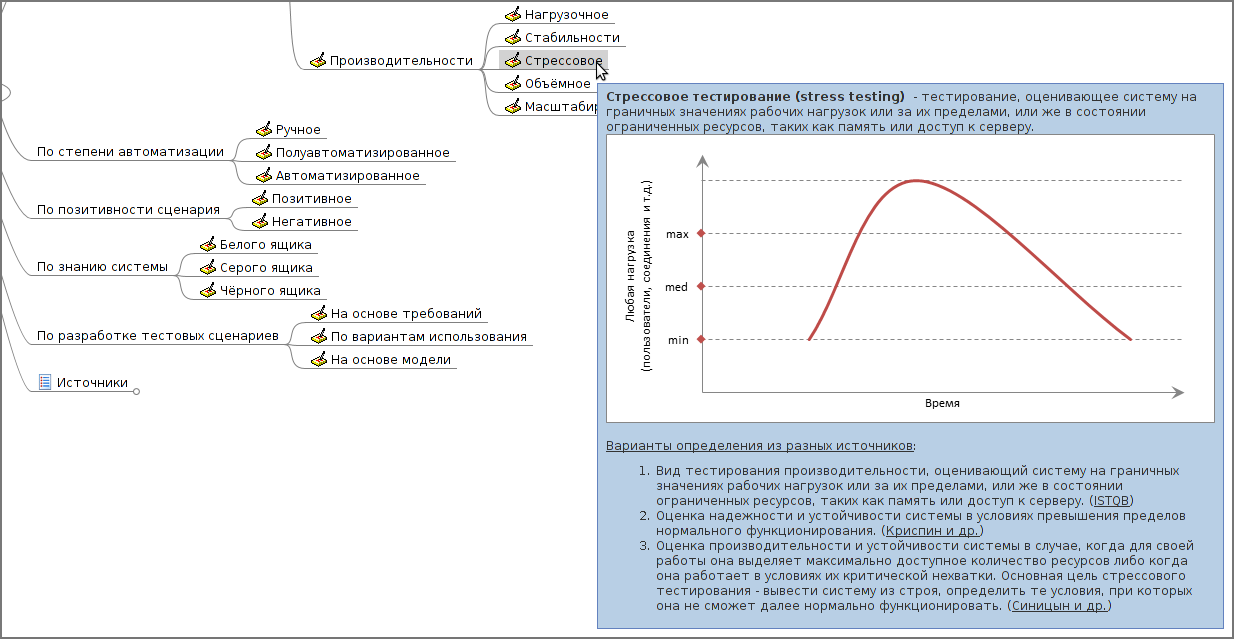
There are limitations to the use of mind-cards in the preparation of the topic of employment. With a large number of nodes, the map is poorly readable on the format of the album sheet. And then it is better to use the blackboard and chalk - to duplicate parts of the scheme on the blackboard.
You need to train a beautiful handwriting and try to draw the scheme as a work of art. The first time he painted quickly, he wrote unevenly. I think he looked like a mad scientist with disheveled hair.
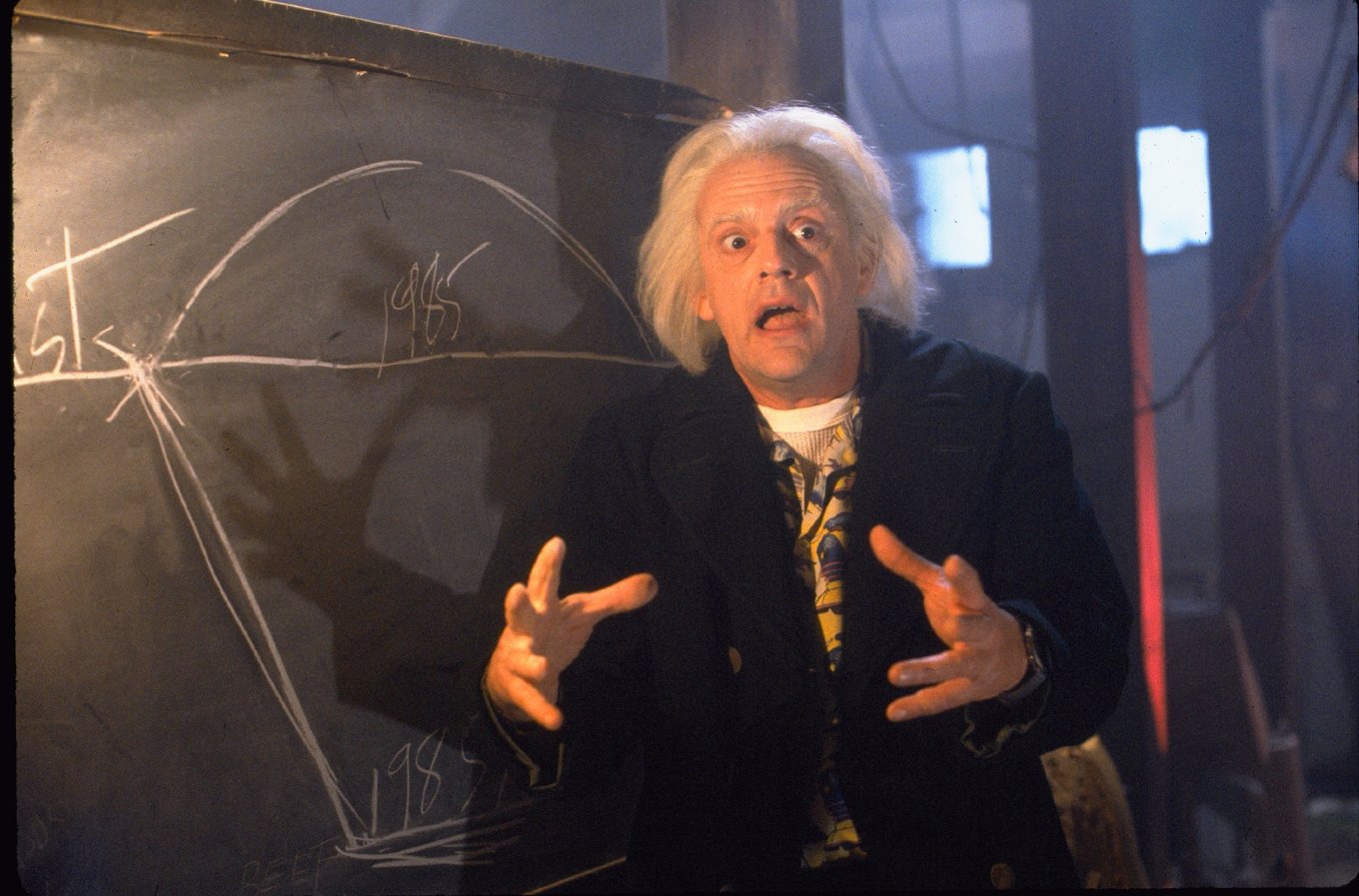
Then he began to try to write and draw, as in primary school. Exactly, beautifully, clearly (“like syllables in the pioneer slogan”). Students started asking more questions. It became clearer that the lessons became clearer.
Prepared thoroughly. There were technical failures and hitch, not everything was able to show and explain. In each case, you can tell a separate story. So preparation of laboratory work on testing - the road to Everest, laid rake. Debugging the work of an automatic test in an ideal environment is sometimes not easy. And if the environment is not ideal, on every educational computer it is its own, and the test is written in haste by a student, then only telepathy and the “developer effect” into which you transform can help.
Teaching allows you to learn to tell, write, see better. Choose basic and simple. And there will be something to remember with a smile.
Worth trying.

Map can be downloaded here .
Map with types of testing for each lesson
Repetition is the mother of learning.
Proverb of different nations of the world.
')
Test types are grouped on a mind map by:
- goals;
- chronology of performance;
- formalities;
- positivity;
- ...
Each lesson was chosen:
- Tested application or service: email client, video hosting, ...
- The reference type of testing, for example, the main functional manual positive ... testing
- Several types of testing for comparison with the reference: repeated, automatic, negative
Began to perform test work within the selected reference type of testing.
The composition of the test papers was selected from the reference list:
- Planning.
- Scripting.
- Preparation of the test environment.
- Run tests.
- Analysis of test results.
- Reports
- Defect tracking.
Each time a map was used to select the type of testing. Each time a reference list of types of work was used.
Pairwise comparison
Everything is known only in the correct comparison.
The author is unknown to me, perhaps Friedrich Nietzsche or Rene Descartes.
With specific examples, we considered which test design technique is more applicable to functional testing and which to the configuration one when preparing scenarios. Understand what the differences test execution for the main functional research testing, from the main functional testing tests . What will be different testing plans. As with this, test projects appear (checklist or mind-map, against instructions with an order of actions and an expected result). What is common is the defect tracking process.
We considered the differences between the reports on configuration testing and scalability testing , or the reports on load and volume .

Brought examples of reports, unclassified and old, reduced them to 3 pages, removing confidential information. They analyzed that in general reports (structure: goals, basis, brief results, details). What are the differences. How to read them. How to make up. How to form automatically.

So, sorting out in pairs the types of testing formed the idea of the choice of tools, approaches, goals and objectives of the studied activity.
The list of works on testing took from SWEBOK (v3), chapter 4 "Software Testing", section "Test Process", subsection "Test Activities".

These types of jobs are performed by test engineers all the time. Every kind of work is important. For everyone there are good and bad recommendations, tools, techniques. The purpose of the lecture sessions was to report to the students the types of testing and the types of testing activities. A relatively small list of knowledge, and this knowledge is enough to start improving the quality of the software.
What for card
We are not given to predict how our word will respond ...
Fedor Ivanovich Tyutchev, February 27, 1869.
The map is a reference note for the teacher. Reminds about what, it is necessary to have time to say. It helps not to say too much. After all, there is so little time, but there is so much to tell.
Previously taught in the classroom, where there were only blackboards and chalk desks. I came to classes exactly at the beginning, I did not prepare a board. I did not want to stand back and draw the studied subject area during classes. Explain the relationships in the diagrams conveniently. Therefore, for each topic I made a mind map. Printed in several copies, distributed to students in class. Blackboard and chalk used to depict examples. Drawn as Baitics move according to the system diagram and lead to SQL injection, or how horizontal scaling works. This is how the habit of preparing mind-cards was formed.
The card allows you to:
- memorize material faster;
- save time when you start classes;
- use an officially authorized cheat sheet for both teacher and student.
While conducting a lesson, you read the paper, but reading between the lines is permissible.
Students, having a map in front of their eyes, have a greater choice:
- just listen;
- to cospect;
- paint.
They think more, find analogies easier, answer questions more confidently. Preparing a card for each lesson, students begin to wait for the next material. And if, all of a sudden, you do not prepare a scheme, the lesson will begin with the question: “And what, did the printer break down?” - they laugh, it’s already good.
The peculiarity of this card with types of testing is the presence of definitions for each node. If you save the map in html format, you will get bulk reading.

There are limitations to the use of mind-cards in the preparation of the topic of employment. With a large number of nodes, the map is poorly readable on the format of the album sheet. And then it is better to use the blackboard and chalk - to duplicate parts of the scheme on the blackboard.
About blackboard and chalk
You need to train a beautiful handwriting and try to draw the scheme as a work of art. The first time he painted quickly, he wrote unevenly. I think he looked like a mad scientist with disheveled hair.

Then he began to try to write and draw, as in primary school. Exactly, beautifully, clearly (“like syllables in the pioneer slogan”). Students started asking more questions. It became clearer that the lessons became clearer.
About teaching
Prepared thoroughly. There were technical failures and hitch, not everything was able to show and explain. In each case, you can tell a separate story. So preparation of laboratory work on testing - the road to Everest, laid rake. Debugging the work of an automatic test in an ideal environment is sometimes not easy. And if the environment is not ideal, on every educational computer it is its own, and the test is written in haste by a student, then only telepathy and the “developer effect” into which you transform can help.
Teaching allows you to learn to tell, write, see better. Choose basic and simple. And there will be something to remember with a smile.
Worth trying.
Captions
 | The classification of types of testing was made by Yulia Grigorieva, as far as I know (if there were several authors, please let us know). It turned out a set of articles on the testing department wiki. | |
 | In compiling articles used various sources:
| |
 | Semi-set of articles designed in the form of a map. The terms can be clarified, so the file is placed on github, to support versioning. Pictures are still posted in Yandex. Photo, we should put them together with the map and record in the releases section. | TypesOfTesting |
 | For mapping used FreeMind 0.9.0. You can also use xMind and other tools that support the format with the extension “mm”. | FreeMind - free mind mapping software |
 | SWEBOK 3 was originally the frame of the course. In the description of the specialty it was written that students are studying software engineering. When asked by an experienced teacher what to base the course on, he said that software engineering is SWEBOK. | Software Engineering Body of Knowledge (SWEBOK) Home |
 | The course “Software Testing and Debugging” was tested in 2014 by students of the Software Department: Nadezhda, Oleg, Ramil, Dmitry, Anatoly, Arthur, Yuri. | |
 | The audience and equipment were provided by Izhevsk State Technical University named after M. T. Kalashnikov. | www.istu.ru |
 | The article uses a frame from the movie Back to the Next 2, where Doc explains how Biff created the version of the future, which now contains the characters. | Photos with Christopher Lloyd |
 | The article used proverbs, poems and phrases, which through the efforts of different people sat down in the head. And icons from the Faenza theme. | Faenza |
Source: https://habr.com/ru/post/223833/
All Articles